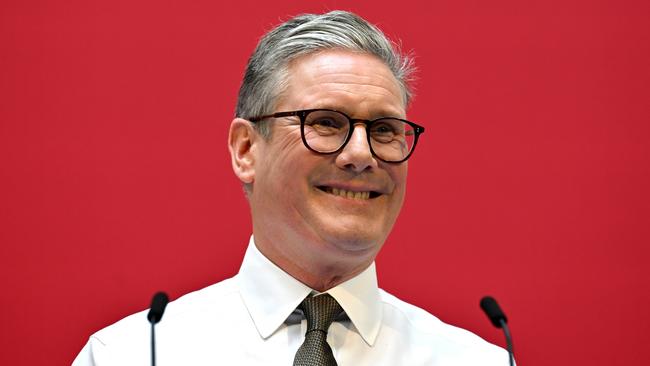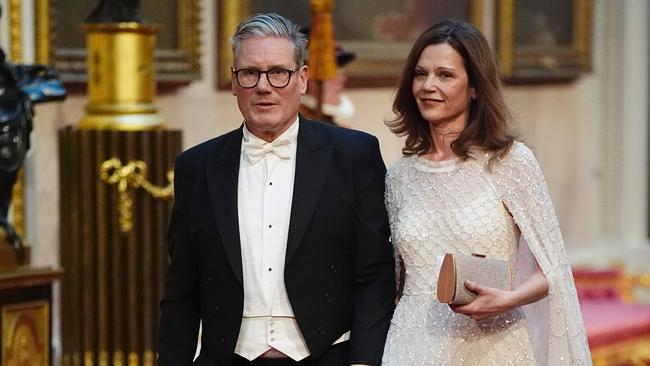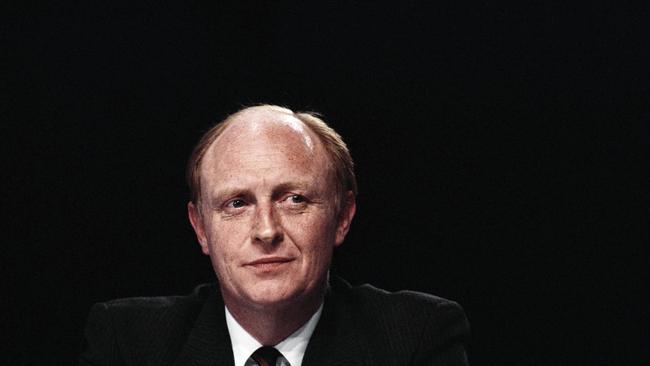Here’s the Keir Starmer I’ve known for decades

Andrew had not only been at school with Starmer but had also been a fellow member of East Surrey Young Socialists. They were good friends and Starmer later moved into the Archway Road flat himself. Andrew thought his friend clever and nice and popular, but also pretty left-wing.
Andrew first mentioned Starmer when we were talking of our own decision to join the SDP, while Starmer rather liked the leftward drift of the Labour Party under the influence of Tony Benn. It is entirely possible that a difference of opinion with him over the 1978 Fire Brigades Union strike may have come up. That’s what I was like as a student.
This was more than 40 years ago. But I still think it has something to contribute to a discussion of one of the most important and trickiest questions in contemporary politics: who, exactly, is Keir Starmer?

Starmer and I are almost precisely the same age. He was born on September 2, 1962, while I was born three days earlier. So during our lives we have witnessed, taken positions on and often involved ourselves in the same political controversies. And we have done this over a long enough period to make it fairly clear how we differ.
These differences don’t show that I was necessarily right, or that he was. Who you judge correct is a matter of political taste. Nor am I self-important enough to think my own positions were relevant to anyone other than me. But the comparison does at least give me a way of judging where he is coming from.
And, crudely, on almost every political dispute over our entire adult lives, Starmer has taken a position to the left of me, starting from the time when I regarded myself as on the centre-left.
Starmer rattled tins to raise money for Arthur Scargill’s miners’ strike, while I opposed it; he thought Neil Kinnock too right-wing and I thought Kinnock too left-wing; he boycotted The Times during the Wapping dispute and acted as legal observer for the pickets, while I wrote my first article for the paper during the same period. He helped edit and produce a Marxist magazine, aided the defence in the McLibel trial, joined lawyers calling for a united Ireland and marched against the Iraq war. All very different to my own politics - which, as I say, doesn’t mean I was necessarily right and he wrong.

This difference persisted until pretty recently. He served in Jeremy Corbyn’s shadow cabinet, which I thought unconscionable; pushed for a second referendum on Brexit, which I thought deeply unwise; and ran for the leadership praising Corbyn’s agenda as an inspiration and a sure base for the party, while I thought it both practically and electorally unrealistic.
There are, however, important areas where our political outlook has been the same. He has always been a defender of the rule of law and we both care deeply about human rights. But the differences between us have been profound.
So what am I - and what are you - to make of the fact that he now presents himself as so much closer to the centre? He has pushed Corbyn out of the party, taken a robust stance on defence and supported a nuclear deterrent, abandoned almost every left-wing policy pledge he made during the leadership election and endorsed a tough policy on public spending, where once he attacked austerity.
There are a few possibilities. The first, promoted strongly by left-wing allies who feel betrayed by him, is that he has always been right-wing and lied during the leadership election to win the contest. I think his history shows that this accusation is untrue. He has been a left liberal for his entire adult life. Then there is the second and opposite idea, that he is as left-wing now as he ever was but is lying to the electorate in order to win the general election. I don’t believe this either. I think Starmer is someone almost painfully concerned to show integrity. This may, in time, prove me a terrible judge of character but I don’t believe Starmer to be a liar. Observing him over many years, I am pretty confident in that judgment.
Then there’s the suggestion that he’s really not that political and has simply got tangled up in contradictory statements because he hasn’t any actual views at all. Yet while it is true that Starmer has only been a politician for a relatively short period, he has been incredibly political since he was at school. He isn’t simply a blank slate.
Which leaves me with this, in many ways reassuring, view. Starmer has not lied about his politics. He is someone with a left-wing instinct; he’s not Tony Blair, he’s not even Gordon Brown. But he is also a pragmatist and deeply realistic. And this leads him again and again to temper his initial view.
Starmer is bright and extremely diligent and often finds that evidence and reality push him away from his ideological starting point. As director of public prosecutions he couldn’t maintain the purist stance of the human rights lawyer acting for the defence. The advocate for activists complaining about police abuse came to appreciate the difficulties of policing. The defendant’s friend became acquainted with the experiences of victims.
In the same way, the man who ran as the unity candidate for the Labour leadership - positioning himself between the Corbynites and the right of the party - came to see that this position was impossible and that the policy of the Corbynites was irresponsible.
These conclusions do not come to him naturally. But they still do come to him. I think we can expect a prime minister who sometimes struggles between his immediate reaction, his idealistic view of himself and the dictates of reality. But as long as we don’t mind too much that he takes his time and sometimes gives a muddled first response, he will often get there in the end.
Of course I worry about the many ways I have disagreed with him over the years. I wouldn’t be human if I didn’t. And I do think there will be moments when he is further to the left in office than many expect him to be. But it is more than a minor compensation that he is also open-minded and careful and deliberative.
He is someone I will disagree with, I’m sure. But also respect.
The Times







I was sitting in a kitchen above a brothel on the Archway Road when I first heard the name Keir Starmer. As I did on most weekends in my student years, I was visiting my friend Andrew Cooper in his rented flat. And, as we also did most weekends, we were talking politics.